I am severely burnt out and have been for some time now.
I frequently need alone time— as much as I need food or sleep. Without it, I struggle to function normally. This is something introverts inherently understand, but extroverts often struggle to grasp. Last year, I switched jobs to one that allows for more solitude, and while it helped, I’ve realized that being alone isn’t enough. I also need time to just be.
Time management and staying on task have always been difficult for me. Even working mostly solo, I face challenges that can lead to mental exhaustion. There are constant time constraints, and my mind is constantly racing—what’s done, what needs to be done, how much time is left—hustle, hustle. It’s physically demanding but I prefer this to environments that require constant interactions.
So many aspects related to my neurodiversity have been heightened since the onset of perimenopause. This has undoubtedly played a key role in mental exhaustion. Psychologists site stress as a major contributor to burnout, and my stress level has absolutely gone up, despite my attempts to lower it. While I work in a relatively low-stress environment, I experience anxiety when I fall behind on tasks. Technically, I work for three different companies, two of which require driving, and that’s a major source of anxiety for me. I was in a bad accident a few years ago and that coupled with sensory overload, can make driving feel overwhelming. My nervous system gets bombarded with information—traffic, navigation, unfamiliar roads. If I don’t know an area well, I start to panic, struggling to hear my GPS, and things spiral from there. That said, once I become familiar with the route, navigation becomes easier.
I have found that most of the stress related to my current job is still preferable to what I experienced when I was responsible for other people’s children—always on high alert, worrying about accidents, choking hazards, or what could happen while I stepped away for a moment. It’s ironic because I love kids, but after years of providing childcare, my nervous system was shot. There aren’t many things in life that are more terrifying than being responsible for multiple human lives that aren’t even your own. Strangely, I worried less when my children were little and included in the mix, but after my youngest started school, caring for other kids felt less natural. My tendency to overthink and stress skyrocketed. Caring for children, however, was easier on my nerves than working with adults who frequently gossiped and behaved like children.
Work stress is only one piece of the puzzle and not even the biggest one. I recently read a statistic that financial struggles severely diminish a person’s quality of life and this type of stress can even shorten lives. Financial stress has been a dagger in my side for too long. It seeps into every part of my life. I work as many hours as I can. Insomnia is frequent—my mind races and I can’t keep from worrying about bills and our future. When things break, I can’t always afford to fix them. I frequently compare myself to those around me, which chips away at my self-worth. I feel defeated when I can’t give my kids the things they want, sometimes even the things they need. I worry about keeping the heat on and putting food on the table. And let’s be real—eating healthy is a privilege. Fresh produce, nutritious food—it all comes at a cost.
Stress feeds depression, and the two create a vicious cycle. Some experts recommend socializing to ease depression, but depression is not related to solitude. Introverts are happy to spend an abundance of time by themselves. To an introvert, alone time is essential. Solitude isn’t just about recharging—it’s about reflection, processing emotions, and healing. But I’m not getting enough of it which has led to burnout—and that, my dear friends, absolutely leads to depression. As a wife, a mother, and a neurodivergent introvert experiencing severe burnout, I often feel like I’m failing my family. I don’t give them enough of my time or attention before becoming overstimulated, irritable, or even panicky. Then the guilt sets in. And guilt fuels depression. And so the cycle continues.
It turns out that the need some of us have—to just be is backed up by science. Many people don’t realize that the need for social interaction—or lack thereof—is hardwired into our brains. The way introverts and extroverts respond to dopamine plays a key role. Social interaction releases dopamine, which extroverts thrive on and even crave. Introverts, on the other hand, are highly sensitive to dopamine. Too much stimulation overwhelms our nervous systems.
For an introvert, a quiet coffee date with a close friend can be the perfect dose of social interaction. Even after that, we may need an hour or more of uninterrupted solitude to recharge. A loud party? Two days might not be enough time, though most of us don’t get even a fraction of that time to recover. On occasion, my need for space has been so dire that even being in the same room with another person feels overwhelming. They could be completely silent, but it doesn’t make a difference—their mere presence can inhibit my ability to self-soothe. This is difficult for me to even write about, let alone verbalize it to someone. I fear hurting the other person’s feelings and I probably dread confrontation more than anything else in life. If an introvert can admit something so personal to you, you shouldn’t take it personally. They aren’t being rude—they are being open and honest. That kind of vulnerability is reserved for those who we care about most.
It’s also important to note that introverts do enjoy spending time with friends and family. They still need love, support, and connection, but this can look very different to us than it does to our more extroverted companions—especially if we are burned out—for this reason, we need patience and understanding. If you care about an introvert, respect their need for space while also checking in—preferably via text. Phone calls can be overwhelming, and unexpected visits can also cause stress. A simple “Hey, thinking about you” text once a week means the world to someone like me. Even if I’m exhausted and can’t respond with much, that small gesture reassures me that I’m not forgotten. When I’m feeling more open to conversation, I’ll call or even set up a coffee date.
When introverts don’t reach out, it’s rarely because we don’t care—it’s because we’re overwhelmed, drained, or battling self-doubt. Please, don’t take it personally, if your introverted friend has been quiet or MIA. I sometimes convince myself that people are upset with me for backing off, which only makes me retreat further. The friends who send occasional texts—even just a quick check-in—help break that cycle of self-isolation.
If you’re in a relationship with an introvert, your role is different. You share a home, meals, and a bed—you are our main confidant. If your partner is quiet, retreating into a book, a hobby, or withdrawing to a separate room, please don’t take it personally. If you’re unsure, simply ask: “Do you need some space?”
One of the worst things you can do is repeatedly ask, “What’s wrong?” when we’ve already expressed our need for solitude. It makes us feel unheard. Worse, it can come across as judgmental, as if needing time alone is a problem to be fixed. A better approach? Say, “You seem quiet—do you need a break?” And for extra points, add, “Can I get you anything?” but make sure to keep your tone gentle. Your tone is everything. Introverts have heightened sensitivity and pick up on frustration or annoyance immediately. If you’re irritated, we’ll sense it, and our defenses will go up. If you’re unsure whether your tone is neutral, it may be better to quietly step away rather than force a conversation.
Some might say this sounds like “walking on eggshells.” I get that. But that phrase is usually reserved for unpredictable, volatile behavior—where you’re constantly tiptoeing because you’re unsure of how a person will react. This is different, however, if your introverted partner has previously communicated their needs when they had the mental fortitude to do so. If they expressed their needs to you, there should be no reason to tiptoe—it comes down to listening to understand their needs and ultimately respecting their boundaries.
Here are some helpful articles related to introverts, neurodiversity, social exhaustion and burnout:
Neurodivergent Burnout / Medical News today
Introvert Burnout / Choosing Therapy
Avoiding Introvert Burnout / Psych Central
You can also support by “buying a coffee”!

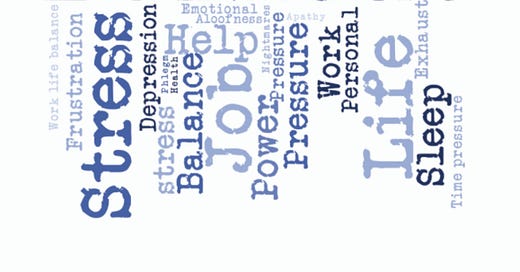



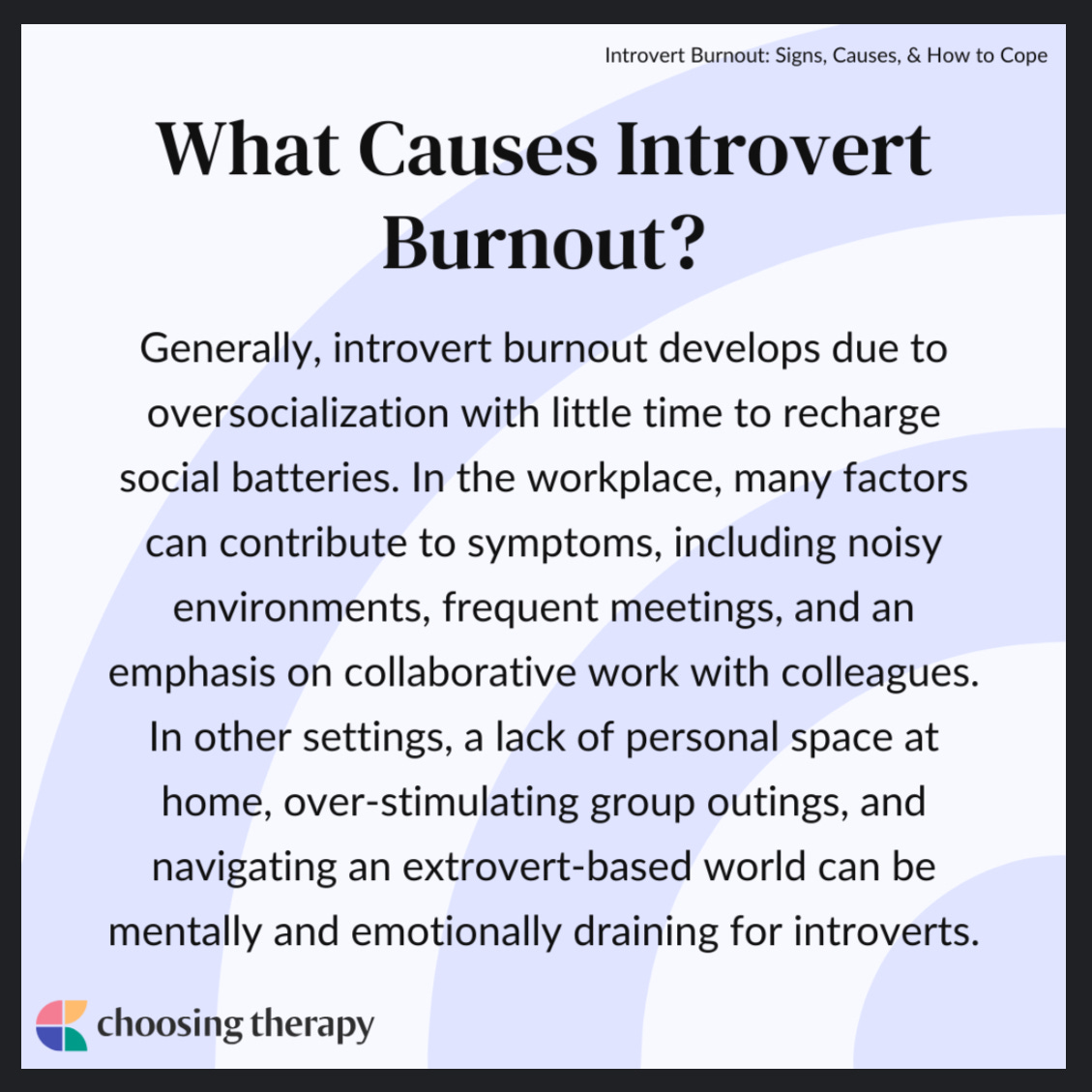
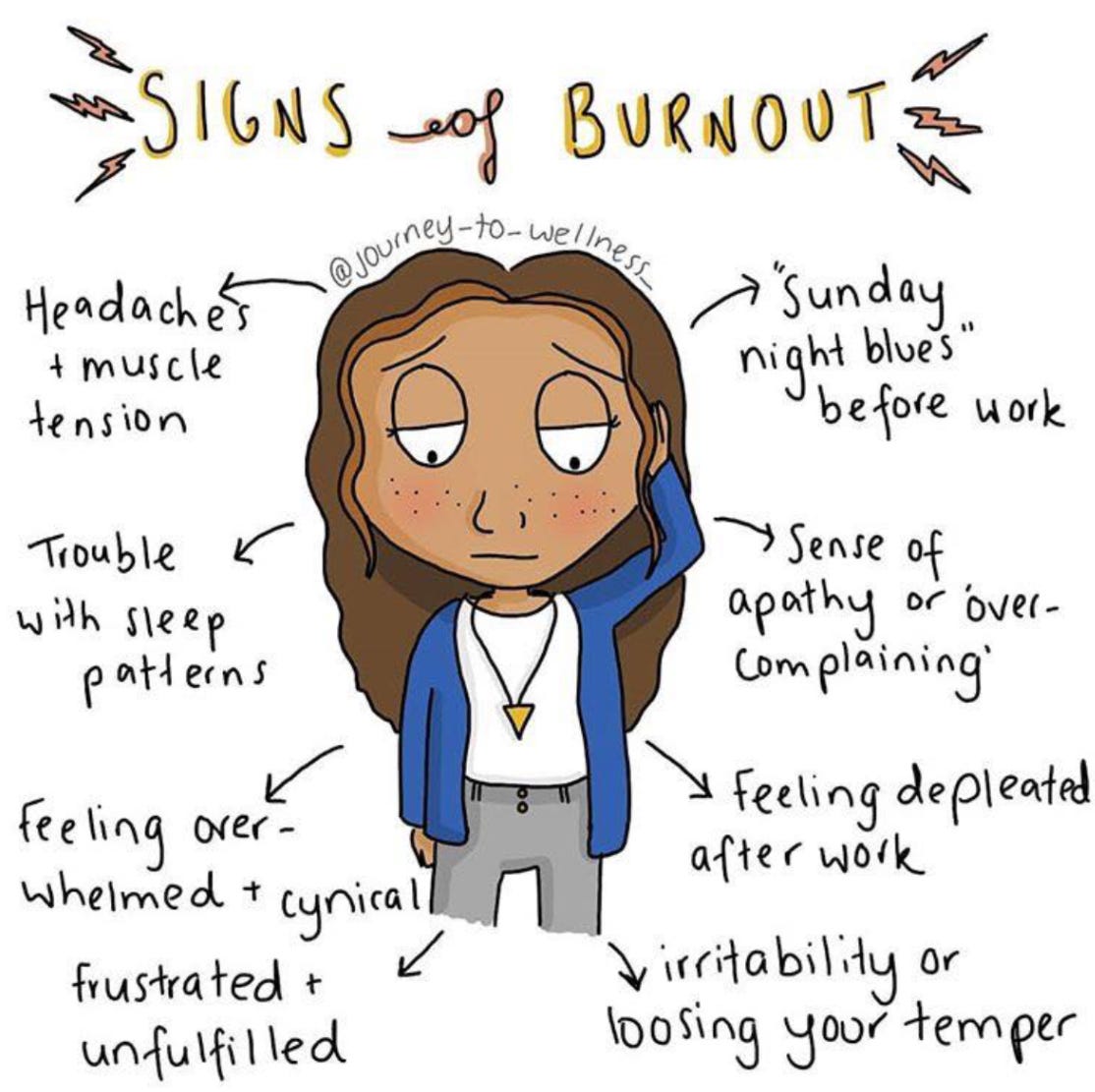
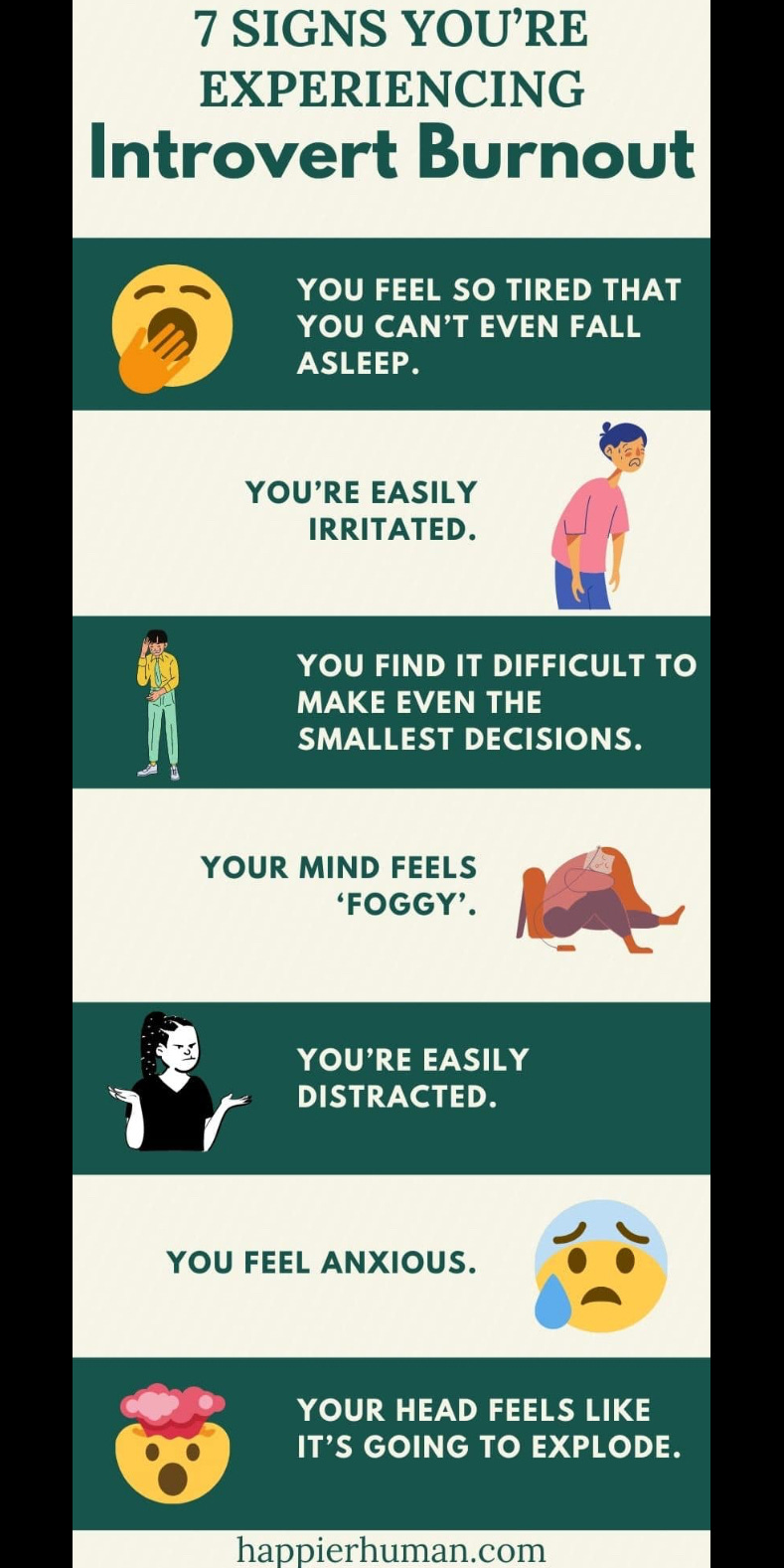
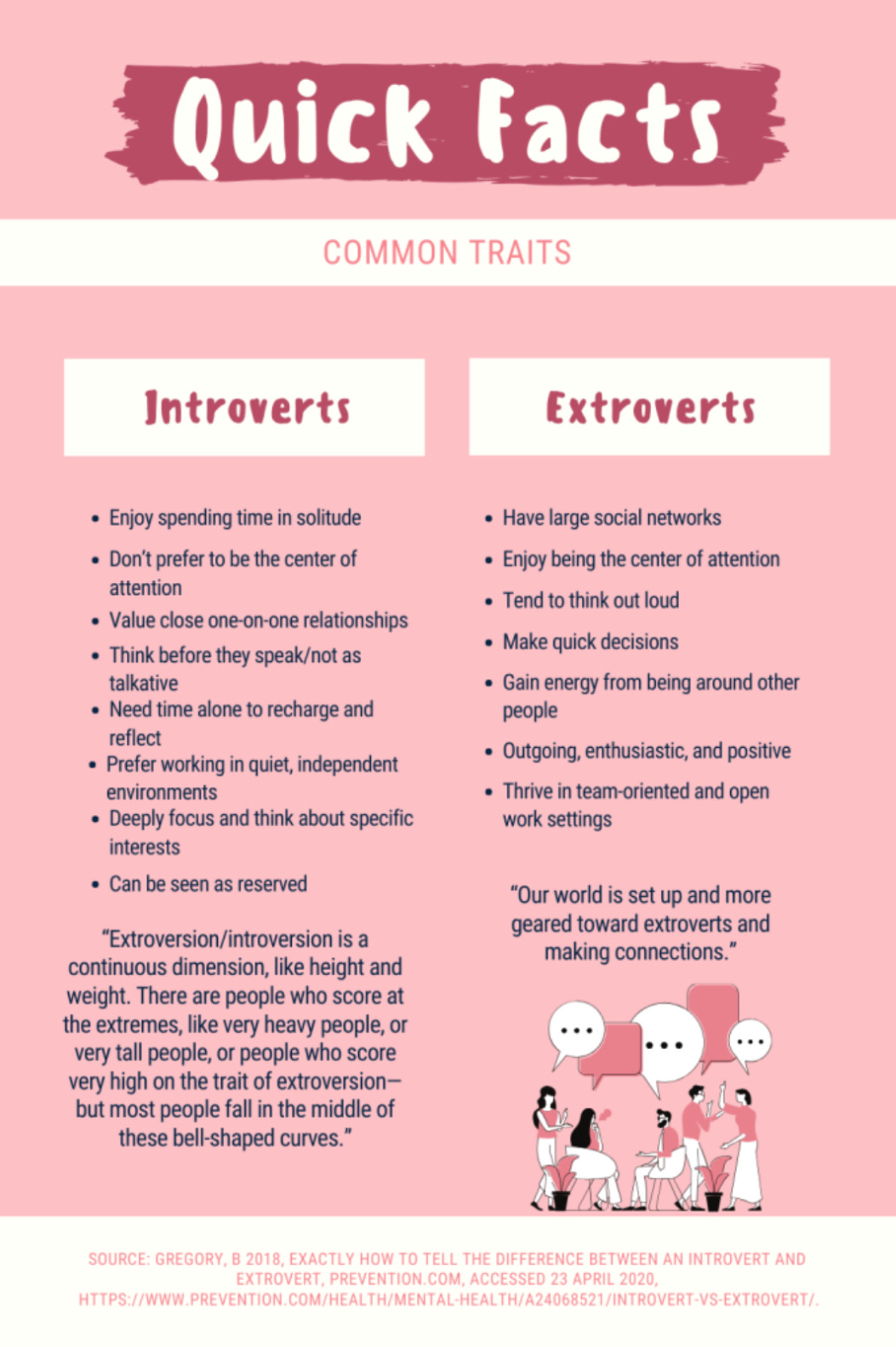
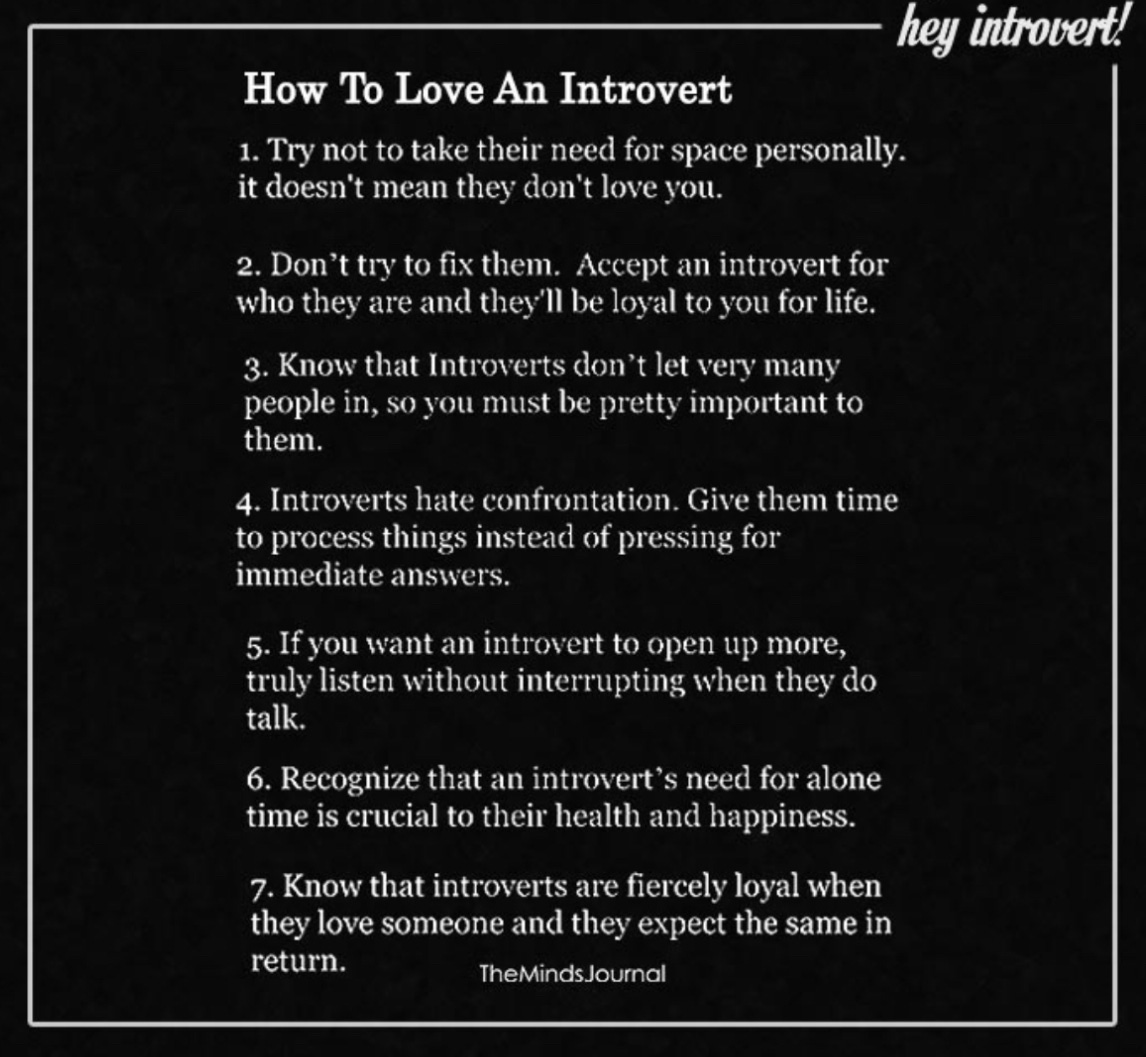
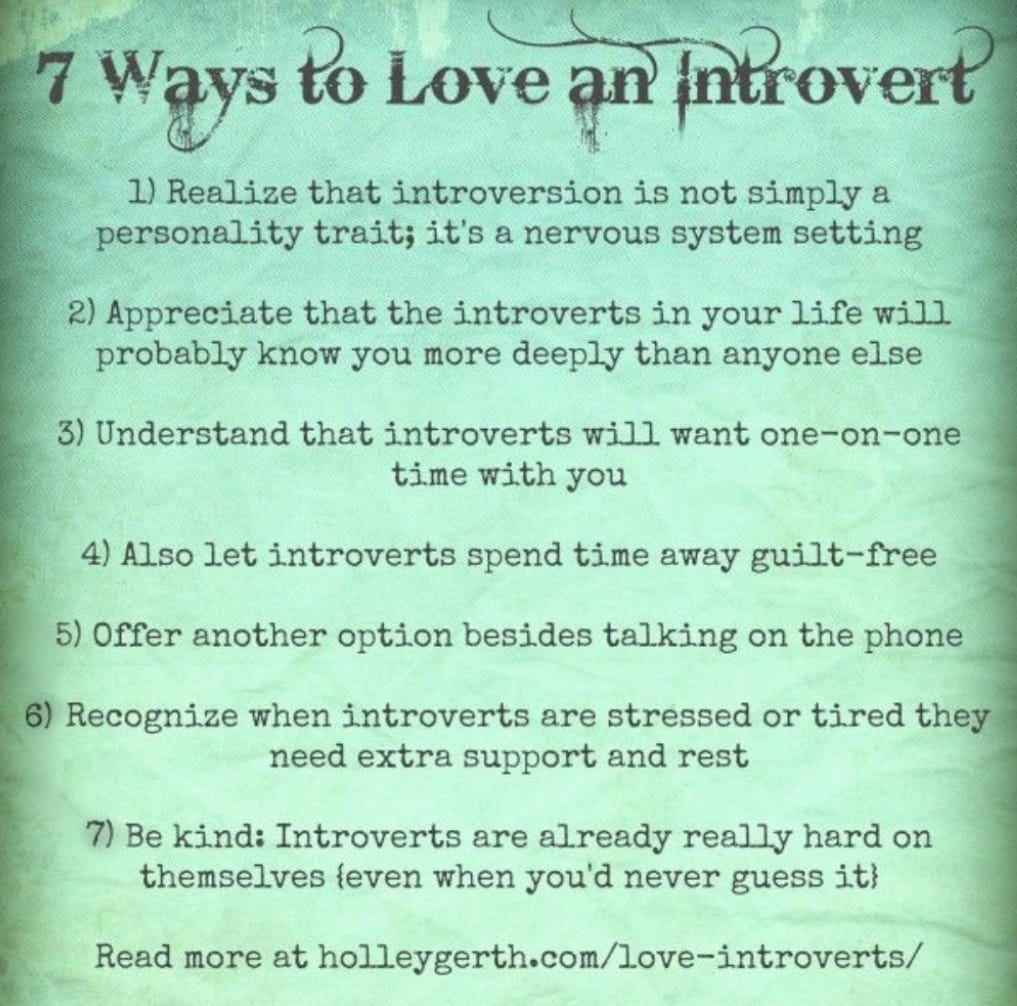
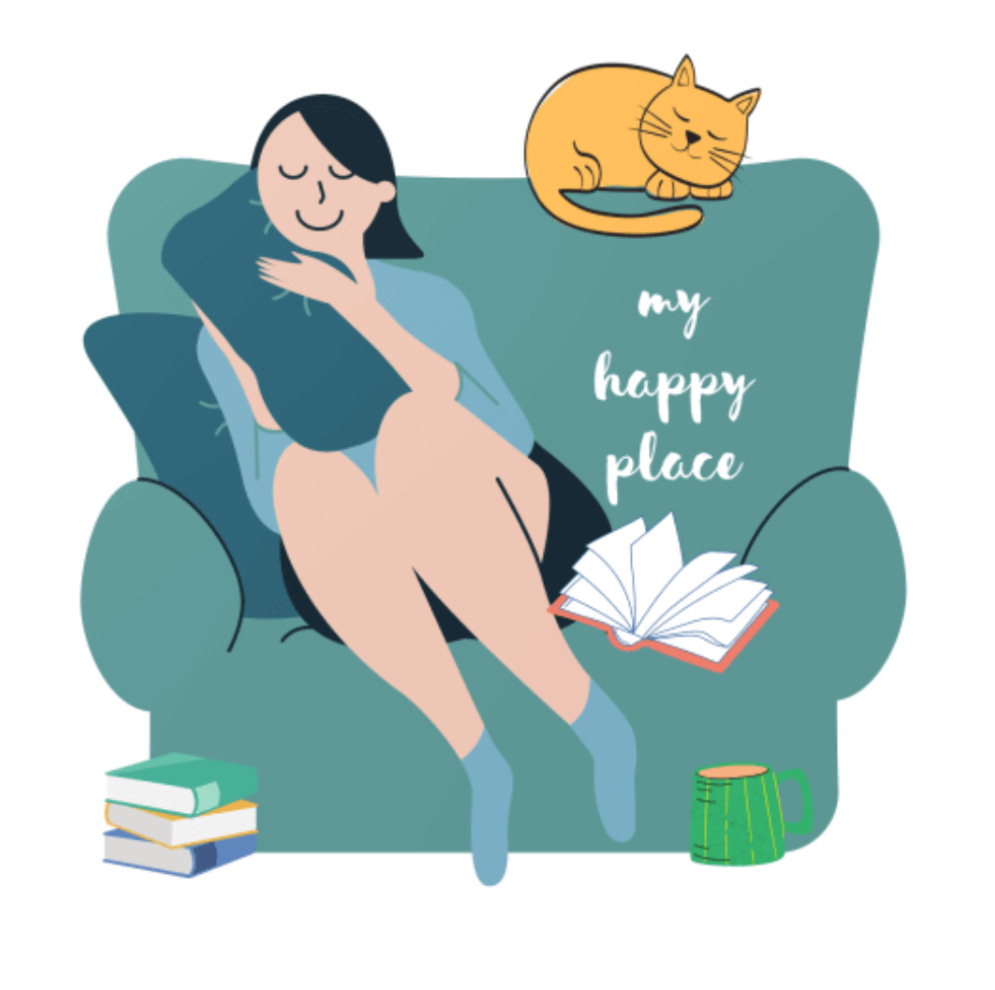
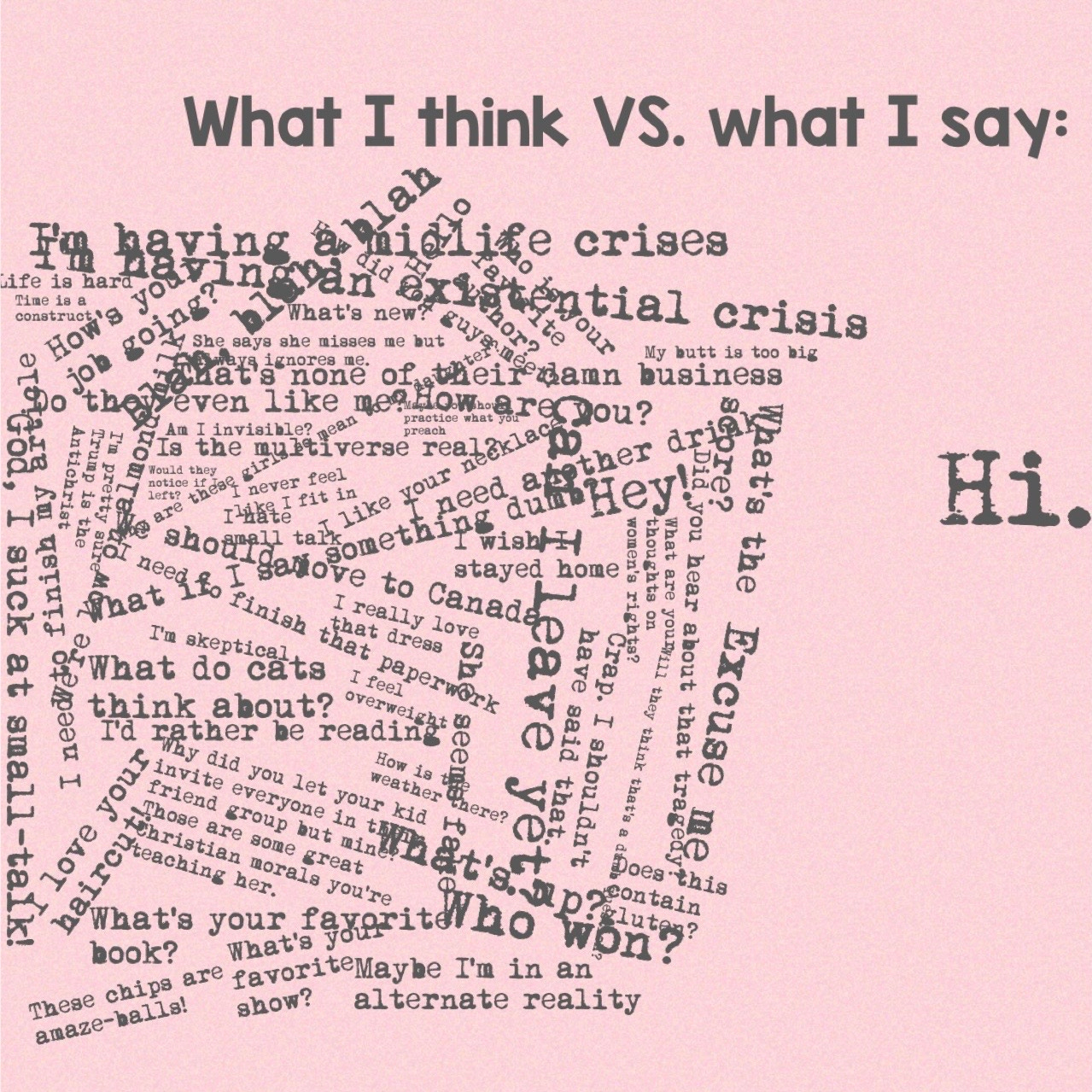
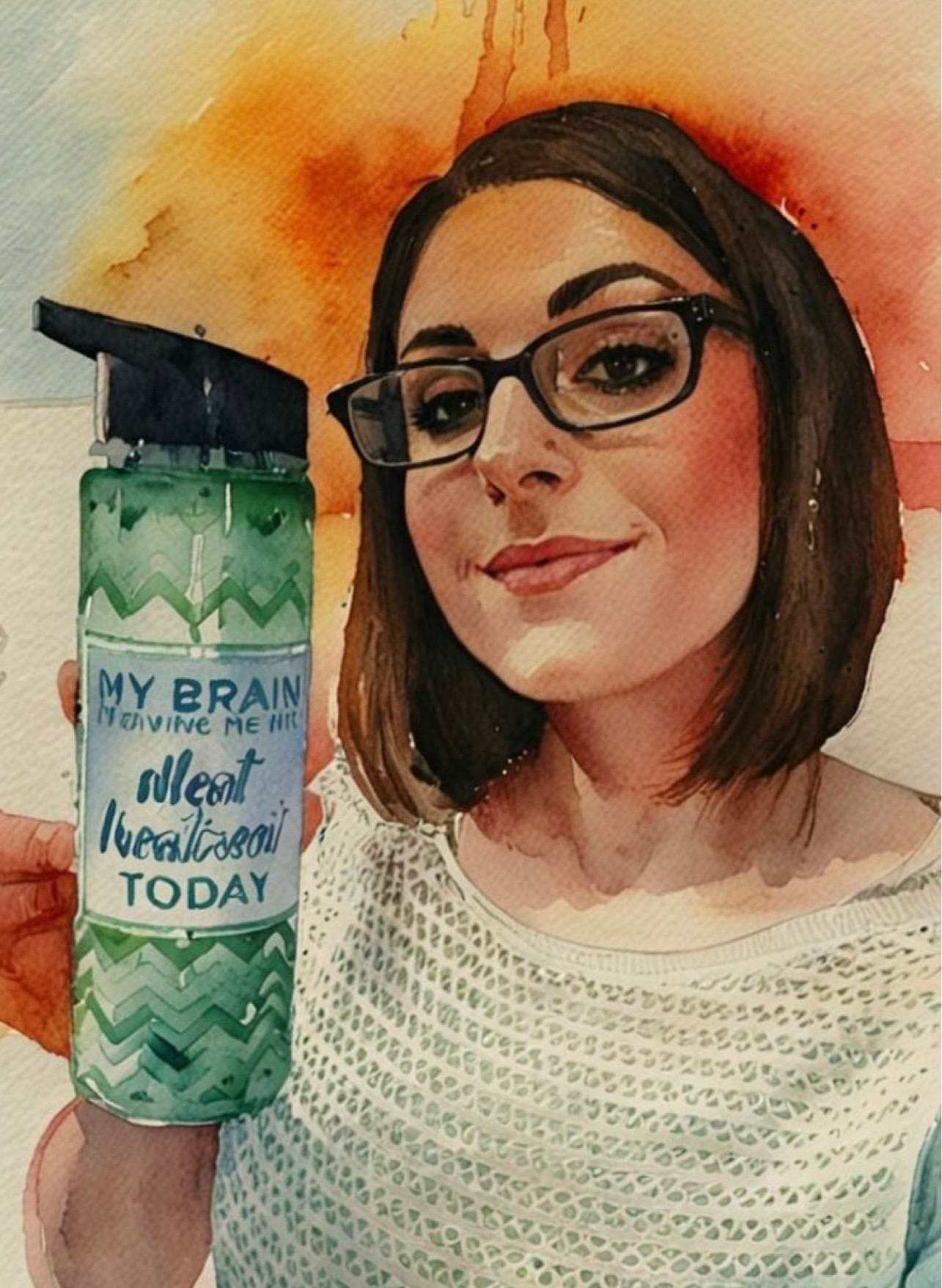
As a fellow introvert, very validating! Thank you for putting this out there!❤️
Hello Tirzah, this is quite the read! I absolutely love the details. You're spot on. Be gentle with yourself, we're all doing the best we can as introverts. I fully resonate, so thanks for sharing. All the best and wishing you love ✨️